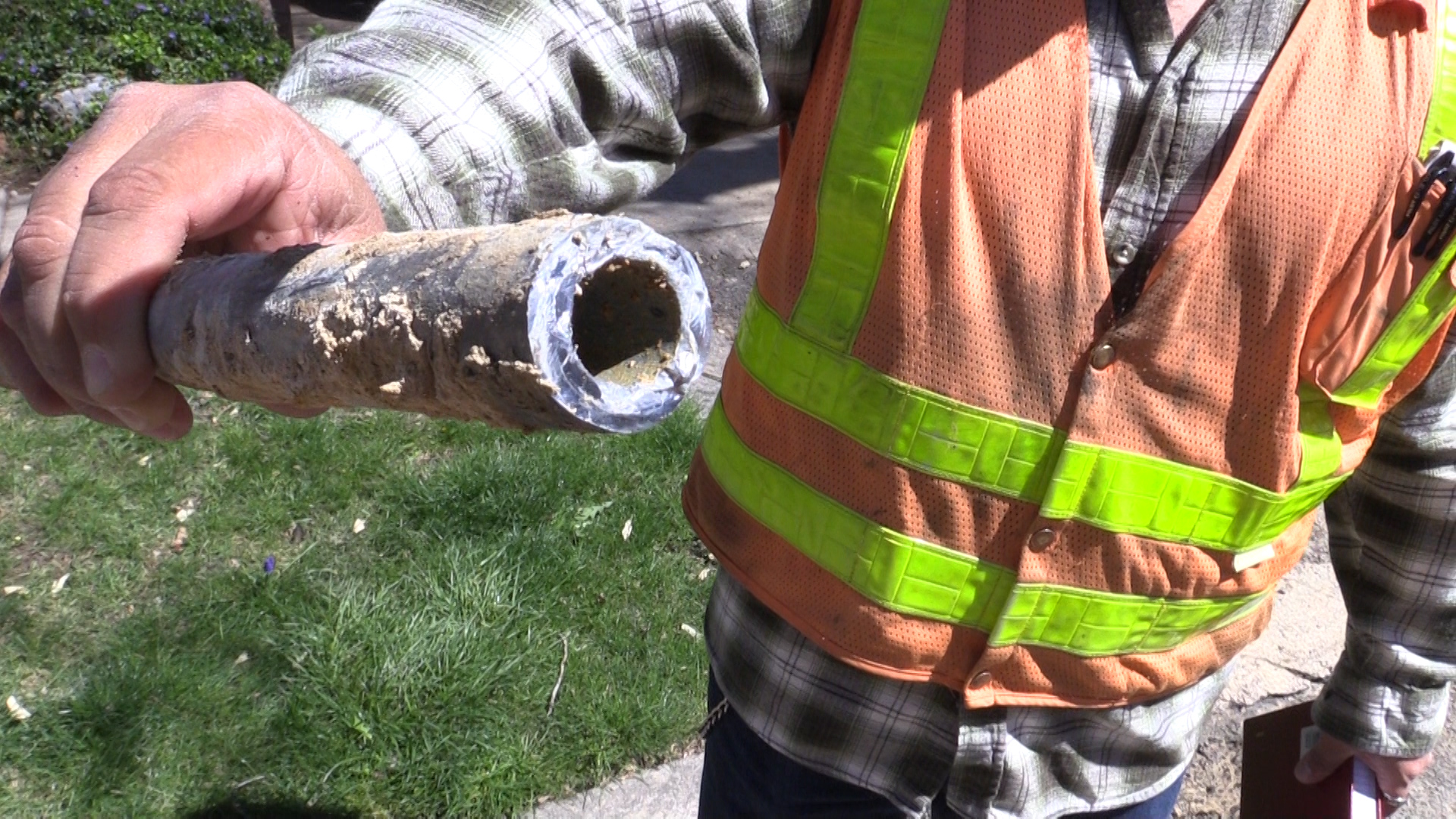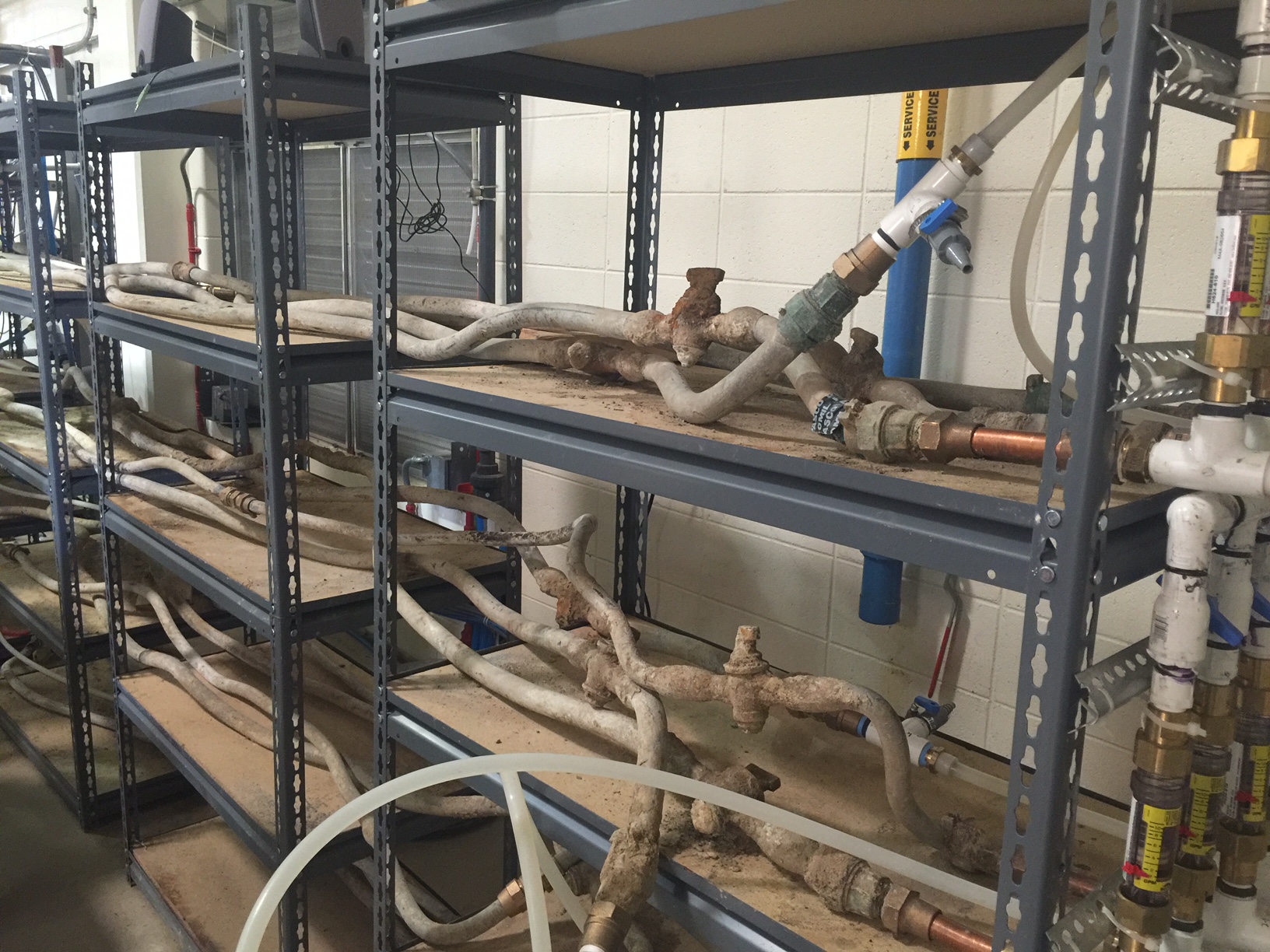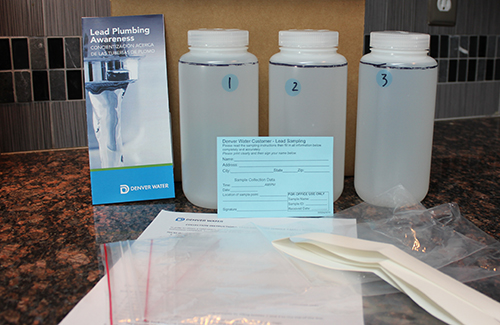
Scaling back a corrosive topic: lead pipes
Denver Water’s scientists, water quality experts and engineers work tirelessly to ensure that 1.4 million people in the Denver metro area have a safe drinking water supply.
“Ultimately, the health of our community is our number one priority,” said Jim Lochhead, Denver Water CEO.
But, there are many challenges associated with this mission, even those that may seem out of our control.
Enter, lead.
Even though there is no lead in the water that Denver Water delivers to homes and businesses, lead can enter drinking water through a customer’s service line or household plumbing.
Removing this buried threat is the best option, but with estimates of up to 58,000 customer-owned lead service lines in our service area — which were installed decades ago by builders — even with a proactive service line replacement program, eliminating the problem will take time.
Until that day comes, there are treatment processes that can help reduce risks for those who have lead service lines and plumbing.
But water quality experts face a careful balancing act of reducing the potential of lead entering the water in at-risk properties without creating additional water quality issues throughout the rest of the water system and region.
It’s called corrosion control.
Simply put, nearly all metals corrode to some degree, and that rate is dependent on outside factors, including water. Corrosion of lead service lines can increase lead levels in water in the home.
Water systems across the nation work to reduce the risk of lead leaching from customers’ plumbing into the water supply by adjusting the pH/alkalinity or adding orthophosphate.
In an effort to investigate ways to enhance corrosion control, Denver Water conducted a pipe study with the limited scope of testing three methods on lead pipes excavated directly from our system. Two of the techniques reduced the amount of lead leaching into the water: Increasing the pH/alkalinity levels and adding orthophosphate as a new treatment method.
While results of the study concluded that orthophosphate reduced the corrosivity of the water slightly more than raising the pH/alkalinity levels, neither option completely eliminated the potential of lead leaching into the water.
Additionally, the study, which was done with oversight from Colorado Water Quality Control Division, wasn’t designed to reflect what happens when the water is integrated with other water systems that blend with other water sources or when it is released back into the environment.
In late March, the Water Quality Control Division provided their final decision on how Denver Water should optimize corrosion control, requiring the addition of orthophosphate to the water supply by 2020.
A decision that Denver Water wants to continue investigating first, to ensure all public health implications are reviewed with a wider-scope than what the pipe study provided.
“When it comes to water, every decision is a public health decision,” said Tom Roode, Denver Water’s chief of operations and maintenance. “It’s vital that any changes to our treatment process are thoroughly studied, researched and investigated before irreversible changes are implemented, like adding orthophosphate.”
For example, there are potential impacts outside of our own service area — especially for water systems that mix our water supply with water from other sources in their distribution system, including Broomfield, South Adams County Water and Sanitation and East Cherry Creek Valley Water and Sanitation District, among others.
In most of these cases, these providers are in newer areas and their customers are not at-risk for lead service lines.
It will take two years to implement this change in treatment as it will require significant alterations to Denver Water’s three treatment plants and will also need to be slowly integrated into the current water system. In contrast, pH/alkalinity adjustment can begin to be implemented this year, which would provide more immediate benefits.
According to Roode, the most responsible course of action would be to partner with CDPHE, EPA and all other stakeholders impacted by the decision for an opportunity to ensure we’re not creating a worse issue in order to alleviate — without even completely fixing — another.
“We can do our diligence while immediately working to reduce the corrosivity of water by gradually increasing pH levels, which we also proved would help optimize corrosion control in our system,” he said. “After a more comprehensive investigation of adding orthophosphate to the water, we can make a more informed and responsible decision for the well-being of our entire community on how to best proceed.”
Before constructing the facilities required to perform orthophosphate treatment, Denver Water would like to first work with CDPHE, EPA and other affected stakeholders on a phased approach, where we could accelerate enhanced treatment for corrosion control by beginning to implement pH/alkalinity adjustments within the next few months, while taking time to work together to study other viable lead reduction alternatives that will be potentially less impactful than orthophosphate injection as currently proposed.
“We want what’s best for the health and safety of our entire community, especially the children who are most at risk to elevated lead levels,” said Lochhead. “Once studies are analyzed and in-depth reviews completed, Denver Water is committed to implement the best approach, regardless of cost.”
When it comes to lead in drinking water, no levels are safe or acceptable, which is why Denver Water provides free lead testing, educational information and programs to help eliminate lead service lines from our community. For more information, visit: denverwater.org/lead.



